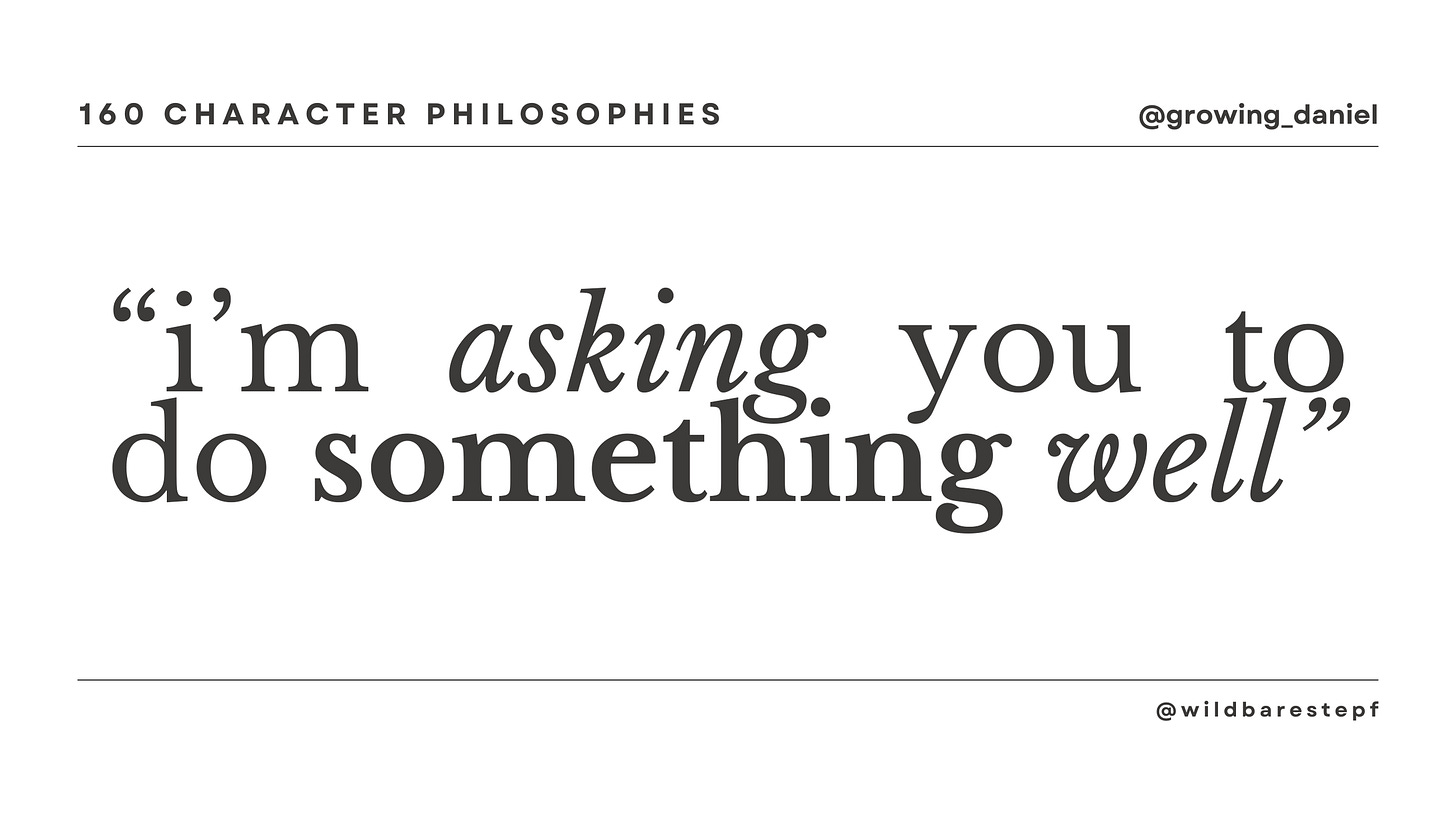The Art of Asking in Seven Words
Twitter bios are strange beasts. Some people write mini-novels. Others leave them blank. But sometimes, you come across one that stops you in your tracks.
Take Daniel's bio: "I'm asking you to do something well."
Seven words. That's it. No explanation. No context. Just a request floating in the digital void.
Who's Daniel? He's a guy who asked Elon Musk to subscribe to his account. And Musk did. Just like that, Daniel's tweets started getting hundreds of thousands of views.
But let's focus on those seven words.
First, notice the "I'm." Not "I am." It's casual. Conversational. Like he's talking directly to you.
"Asking." Not telling. Not demanding. Asking. There's a humility there. A recognition that he can't make you do anything. He can only request.
"You." Who's "you"? It's everyone and no one. It's Elon Musk. It's his hundred thousand followers. It's you, reading this right now.
"To do something." Vague, isn't it? He's not specifying what. It could be anything. Write code. Bake a cake. Change the world. The "something" is up to you.
"Well." Not perfectly. Not amazingly. Just well. It's a reasonable ask. Do it well. Put in effort. Care about the outcome.
Now, step back. What's Daniel really saying here?
On the surface, it's simple. He's asking us to do something, and to do it well. But there's more to it.
It's a challenge. A call to action. In a world of half-assed efforts and "good enough," Daniel's asking for quality. For care. For attention to detail.
It's also a mirror. What's the "something" you're doing right now? Are you doing it well? If not, why not?
There's an optimism to it. An assumption that we're all capable of doing things well. That we just need a little nudge, a little reminder.
But there's also a hint of desperation. Like he's seen too much mediocrity. Too many things done poorly. And he's quietly pleading for better.
It's funny, in a way. Here's a guy known for his humor, for his viral tweets, and his bio is this earnest request. No jokes. No memes. Just a simple ask.
Is this how Daniel lives his life? Always striving to do things well? We can't know. But that's not the point. The point is the challenge it presents to us.
Think about the last thing you did. Anything. A tweet. A meal. A conversation. Did you do it well? Really well? Or did you just get it done?
Now think about the next thing you're going to do. How would it change if you approached it with Daniel's words in mind? If you committed to doing it well?
It's easy to coast. To do the bare minimum. To say "it's good enough." But what if we didn't? What if we took Daniel's request seriously?
Imagine a world where everyone did things well. Not perfectly. Not amazingly. Just well. How different would it be?
This is the power of a good Twitter bio. Seven words, and suddenly you're questioning your approach to life.
Of course, it's not that simple. We can't always do everything well. We have limits. Time constraints. Energy constraints. Sometimes, good enough has to be good enough.
But maybe that's not the point. Maybe the point is to try. To care. To put in the effort, even when no one's watching.
Because here's the thing: someone's always watching. If not others, then ourselves. And at the end of the day, we have to live with the quality of our work, our relationships, our lives.
So next time you're about to do something - anything - remember Daniel's words. Ask yourself: Am I doing this well?
It's a simple question. But it might just change everything.
In the end, whether Daniel lives up to his own bio doesn't matter. What matters is how it affects us. How it makes us think. How it might make us act.
Seven words. A whole philosophy of life. What's yours?
Next time you're on Twitter, take a closer look at those bios. You might be surprised at what you find. A life philosophy. A challenge. A mirror.
All in 160 characters or less.
And maybe, just maybe, you'll be inspired to do something. Anything. Well.



